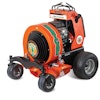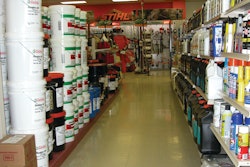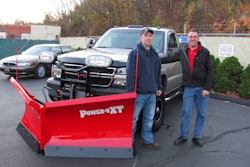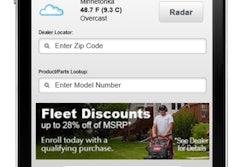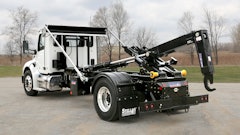Whether or not you are willing to take on just any equipment repair that comes in off the street often depends on where you are in your career as a dealer. In order to keep your shop under control and customers happy, your walk-in policy should be carefully considered and communicated.
Where you are decides what you do
If you are just starting out in the outdoor power equipment business, it is likely you will do any repair that comes your way. This is what helps you build your customer base and make a name for yourself and your technicians in the market.
As time goes on, and you build your business and are selling more of your own equipment, you may have to restrict what repairs you can handle. You will likely want to offer priority service to customers who bought their equipment from you, ahead of those who did not. If your shop is busy enough this may mean turning away repairs on equipment bought elsewhere.
If you are turning the corner toward retirement and downsizing your business, you may reduce the amount of products you sell and pick back up the repairs you had previously denied. Your focus has shifted toward high-margin parts sales and the ever-reliable repair market.
Different approaches to repair policy
At Topp Small Engine in Tecumseh, OH, Ron Topp rarely turns away an opportunity to service a piece of equipment. He does, however, see the importance in honoring his loyal customers first.
"If you buy from me, you go to the front of the line for service," says Topp. "I don't know if that hurts or helps us with the other customers. It doesn’t bother me to explain to them that if a third-generation loyal customer comes in, we are going to take care of them first."
Topp says some of his customers understand this practice while others do not. Having been in business since 1968 he says while he hates to turn them away, he is still doing well in business.
"We don't want to see any customer walk out that door," says Topp. "If they do, they won't come back unless they end up somewhere else where they aren’t happy."
John Estocak of Johnny's Mower Sales and Service in Uniontown, PA, also gives his equipment-purchasing customers priority. However, in the winter months his doors are only open for regular customers.
"Regular customers do usually get priority," says Estokat. "We close in the winter months because the overhead doesn’t justify staying open. We don’t get a lot of snow business. Regular customers will come for service and we come in a few hours a day to work. We are not open to business off the street in winter months."
Another dealer interviewed said he refuses to do any repairs that come from the big box retailer. "We tried to coexist with the big box initially, doing service work for the local Home Depot, Wal-Mart and Tractor Supply,” says one east coast dealer. “But we couldn’t find a way to make money doing it.”
Repair policy communication
Whatever your repair policy is, communicating your policy to employees and customers is paramount. Explaining why you offer or don’t offer the service you do in the right way can gain you a new customer or a new enemy.
"We are upfront with customers and I think they understand it," says Estokat.
When customers come in for repairs on equipment bought elsewhere, quickly inform them they won’t be first on the “to do” list. Explain why your policy is the way it is and that had they bought equipment from you they would receive that same priority treatment. While this honest explanation sometimes angers customers, many other times it may help convert one of the big box shoppers into a dealer-loyal customer.
“I have customers that decide to purchase from us after being explained the situation,” shares one dealer. “We are very proud of the way we take care of our customers, and it shows. I would say I get just as many sales that way as I would trying to work on everything the mass merchants send our way.”
Be sure to train employees on how to communicate this information to customers in a way that is respectful and highlights the positive benefits of purchasing equipment from your dealership. Have your repair policy posted at the service desk for customers to see so employees can turn to it if there are any questioning customers.
You may also want to include this information on your website for customers searching the internet for a dealer to service their equipment. Whatever your policy, stick to it and be straightforward with your customers. Standing with your policy will further strengthen the policy and your relationships with customers.



